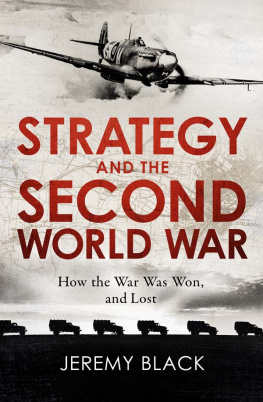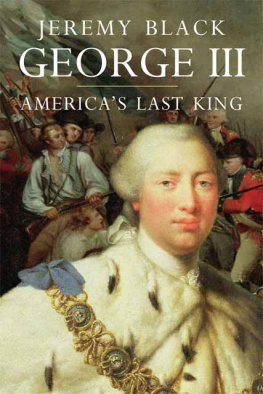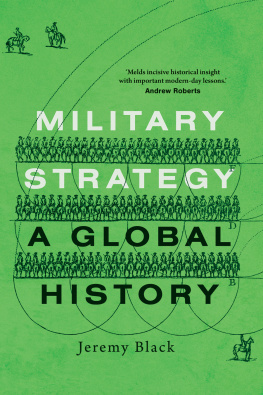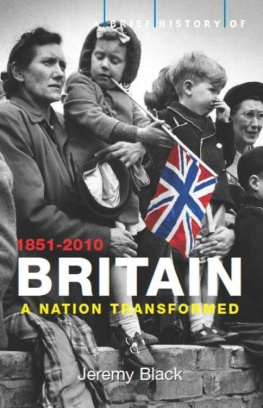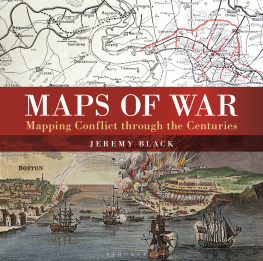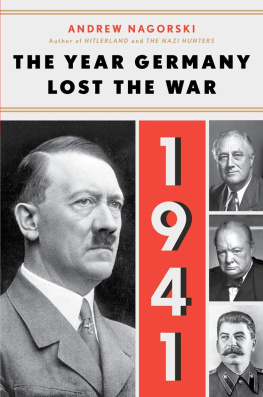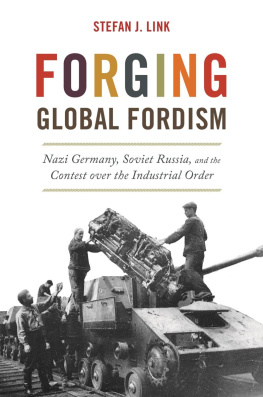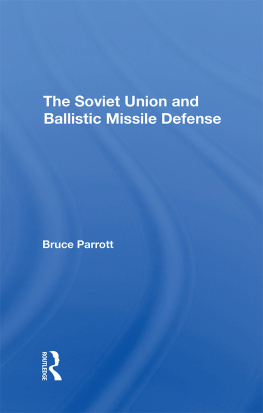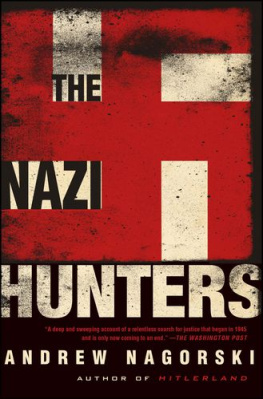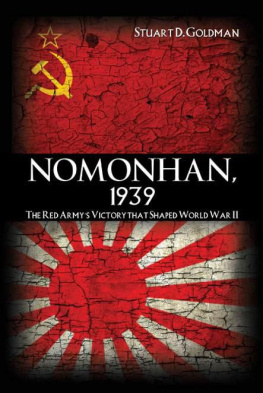Contents
Guide
Jeremy Black is one of the UKs most respected and prolific historians. He is Emeritus Professor of History at the University of Exeter and a renowned expert on the history of war. He is a Senior Fellow at Policy Exchange. His recent books include A Brief History of the Mediterranean and The World of James Bond, which offers a historians perspective on the Bond novels and films. He appears regularly on TV and radio, including BBC Radio 4s In Our Time.
ALSO BY JEREMY BLACK
A Brief History of Britain 18512010
A Brief History of Slavery
A Brief History of Italy
A Brief History of Spain
A Brief History of Portugal
A Brief History of the Mediterranean
A Brief History of the Caribbean
Strategy and the
Second World War
JEREMY BLACK

ROBINSON
First published in Great Britain in 2021 by Robinson
Copyright Jeremy Black, 2021
The moral right of the author has been asserted.
All rights reserved.
No part of this publication may be reproduced, stored in a retrieval system, or transmitted, in any form, or by any means, without the prior permission in writing of the publisher, nor be otherwise circulated in any form of binding or cover other than that in which it is published and without a similar condition including this condition being imposed on the subsequent purchaser.
A CIP catalogue record for this book
is available from the British Library.
ISBN: 978-1-47214-509-3
Robinson
An imprint of
Little, Brown Book Group
Carmelite House
50 Victoria Embankment
London EC4Y 0DZ
An Hachette UK Company
www.hachette.co.uk
www.littlebrown.co.uk
For Robert Crowcroft
Contents
In relaxed poses, Churchill and Roosevelt amiably share a bench on New Bond Street in London, or at least they have done so since the life-size sculpture Allies by Lawrence Holofcener was erected there in 1995. Commissioned to commemorate fifty years of peace, and largely paid for by the luxury businesses on the street that serve many foreign tourists, prominently Americans, the sculpture testifies to the strong desire to propagate and celebrate a memory of wartime cooperation, and a wish to humanise it, as well as to focus on the role of the leaders who are presented as equals.
This cooperation is a memory much used today by both Americans and, far more, Britons who emphasise the value of the frequently proclaimed Special Relationship between the two powers. In doing so, they see this wartime alliance as an important lesson for modern Britain and, indeed, the United States. The reality, then and now, however, was of a different relationship; one, largely born of necessity, that was very much transactional and, at times, extremely troubled. Which is not surprising between allies. Indeed, Roosevelt could be very harsh to Churchill, notably at the Tehran conference of Allied war leaders in NovemberDecember 1943. He carefully avoided visiting London during the war and was a persistent and vigorous critic of the British Empire. At the governmental and popular levels, the British were keener on the Americans than vice versa.
In practice, indeed, the interplay of impression and reality, both then and subsequently, captures much of the politics of strategy. This interplay needs to be pushed to the fore. This is not least because the political dimension undermines the idea that there was an optimal choice of strategy, whether in intention or in implementation; and this undermining is correct. Indeed, strategy, an all-encompassing phenomenon and practice, has integral ideological, political, social and cultural elements, all of which are of great consequence; and each of which affects the conception, formulation, implementation and assessment of strategy.
Moreover, it is necessary to unpick the idea of national strategy and to emphasise, instead, the variety of strategies on offer at the national level. In large part, this situation, as far as military strategy was concerned, reflected the very different perspective of the individual services although far more was entailed, including divisions within the services and, at the level of government, very different assessments of national interests and goals. This tension is generally underplayed due to the emphasis, instead, on national leaders. While that emphasis is valuable, it suggests a misleading degree of coherence.
A short, accessible and, in particular, very lightly footnoted public- and student-friendly account of strategy and the Second World War is missing from the literature. There is a need for one promptly as we have just had the eightieth anniversaries of its start in Europe (1939) and the Fall of France (1940), which left Germany in an apparently dominant position. These will be followed, in 2021, by the eightieth anniversary of the war becoming global, with the German attack on the Soviet Union, that of Japan on Britain and the United States, and the German declaration of war on the United States. American participation helped lead much of Latin America into the war against Germany.
That the anniversaries accentuate longstanding history wars about the causes, course, consequences and meaning of the world war, both as a whole and for particular countries, underlines the need for such a concise book. It is particularly necessary to be alive to these present-day controversies and their undoubted significance, both for the understanding of the world war and for that of the present day. Linked to this, it is important to engage explicitly not only with the strategic issues of the time (and as they developed chronologically and also how they interacted), but also to relate those to subsequent debates about the choices made. The continued political contexts and resonances of these debates require discussion. Chapters seven and eight explicitly address this issue. The continuing need for such discussion is illustrated by the renewed controversy over strategic bombing that was pushed to the fore in February 2020 at the time of the seventy-fifth anniversary of the bombing of Dresden.
Underlying these points comes the understanding of strategy. I build on the conceptual and methodological perspectives offered in my existing works on strategy: Plotting Power. Strategy in the Eighteenth Century (2017) and Military Strategy. A Global History (2020). As a result of this approach, there will be a wide-ranging treatment of strategy, and not one framed by a tight definition. The book focuses on strategy as the integration of long-term political, economic and military planning; but strategy also relates to military doctrine, as with the Soviet deep battle concept. Strategy, moreover, focuses on the level where theoretical doctrine meets practical operational planning, which is crucial to the strategic level of military planning. The key stance in this book will be, first, to emphasise strategic culture, secondly, to collapse the questionable distinction between policy and strategy, and, thirdly, to stress the dynamic impact of contexts, the continual significance of prioritisation and the significance of the unfixed nature of alliance systems. Bringing dynamic, fluid and chaotic factors into the examination of strategy is helpful. Hindsight gives us knowledge of the whole story, so that we tend to impose order when none may have existed.

